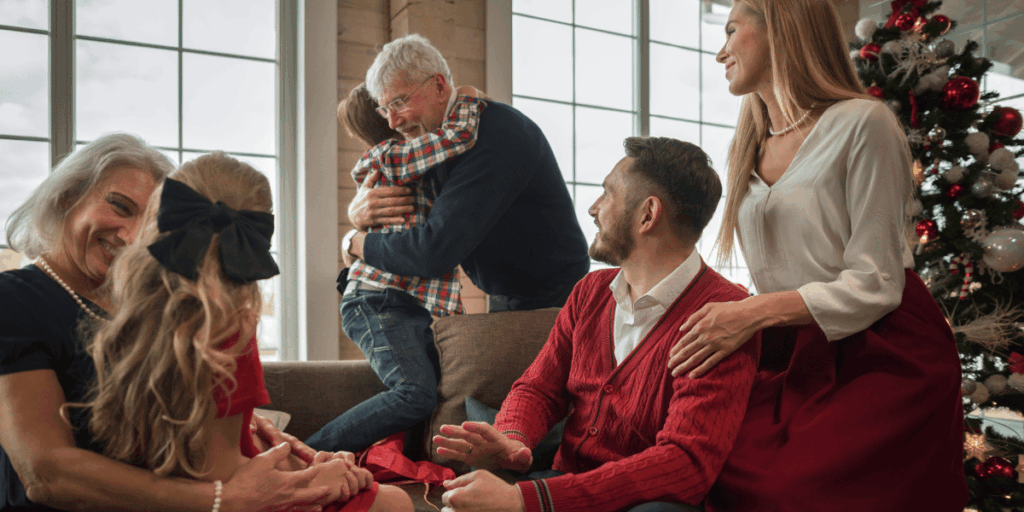Two Steps to Improving Your Emotional Health This Thanksgiving
I think we can all agree that in many ways this has been a brutal year. Or three. The war in Ukraine. Continued pandemic impacts. Unprecedented levels of anxiety. Spiking costs.
But . . . there are also many ways in which this has been a time of grace. Marriages have been strengthened. Church attendance among Millennials and Gen-Xers has soared to even higher levels than before the pandemic. And despite those high levels of anxiety, the pandemic-enforced togetherness of many parents and kids actually improved mental and emotional health for many children.
Both big-picture (societal level) and little-picture (individual level), all of us have a lot to be thankful for this year!
So why doesn’t it always feel like there’s a lot to be thankful for?
It turns out, many of us want to have that sense of gratitude but are not taking the two crucial steps needed to actually create it. So this Thanksgiving, let’s take these two steps together – and improve our mental and emotional health at the same time.
Step # 1: Go looking for the good
Not long ago, I wrote about a crucial neuroscientific principle: What you focus on is what you will see. This truth has a profound impact on our mental and emotional health, our relationships, and pretty much everything else in life.
Here’s why it matters for thankfulness: In a broken world, we have to train ourselves to see and focus on the good stuff. Because it is easy to see the bad stuff. That comes at us every day. If we wanted to go through a depressing exercise, we could easily list the negative things that occur in our lives and world around us.
Yet the good stuff is there, too: We just have to be purposeful about lifting our eyes and looking for it. Every one of us have dozens – hundreds! – of things we can be thankful for, big and small: The encouragement from a friend, the roof overhead, the care of a pastor, our ability to earn income, the freedom to attend church without persecution. When we go looking for those good things, we will see them much more often and much more easily. And as we focus on the good, it actually blocks the negative, depressing emotions – envy, resentment, etc. – that could have so easily filled us if we weren’t careful.
As one leading gratitude researcher, Dr. Robert Emmons, put it: “This makes sense: You cannot feel envious and grateful at the same time.”
So going looking for the good gives us our starting point. But to create a long-lasting feeling of thankfulness, we need an essential Step #2.
Step # 2: Express your gratitude – don’t just think it
In 2015, some Indiana University researchers discovered the secret sauce to thankfulness that many of us miss: Gratitude has to be expressed in order to have the impact we are hoping for.
I was particularly interested in this, since our research for the 30-Day Kindness Challenge found that we don’t actually express gratitude and praise nearly as often as we think we do! We think it, but somehow we don’t actually say it.
The Indiana University researchers explained that most gratitude studies were done among the general population, including those doing great in their mental and emotional health. These researchers instead wanted to look at whether thankfulness had any impact on people having a challenging time. So they studied adults starting counseling for depression and anxiety, and randomly assigned them to one of three groups. The first group was asked to write a letter of gratitude to another person each week for three weeks. (This expression of gratitude didn’t even have to reach the person they were grateful for; only 23% of the participants actually sent the letters). The second group wrote about their feelings and concerns; essentially, they wrote about why they were in counseling. The third set was the control group; they didn’t do any writing.
It wasn’t even close. The first group had the best improvement in their mental health and feelings of gratitude. But here’s the interesting part: it grew over time! Most “think positively” experiments find a spike in positive feelings, which return to baseline before too long. But in the wake of actually expressing (not just thinking about) thankfulness, the positive impact on these participants strengthened in the following months. Even though the first group only wrote their “gratitude letters” for three weeks, they were still doing far better three months later! The researchers were so struck by this that they did fMRI scans on the brains of those in the “expressive” group and found they had more neural sensitivity in the medial prefrontal cortex – which is where you learn and make decisions. In other words, their brains appeared to have “woken up” to the benefits of purposefully expressing gratitude, so they felt a need to do it even more. Which, as you can imagine, creates a positive cycle.
“Be thankful in all circumstances”
In a world of need, it’s not always easy to purposefully keep gratitude in mind. But it is one of the crucial actions we are supposed to take – not just to help ourselves, but to honor the One to whom all Thanks are ultimately given.
Two thousand years ago, the Apostle Paul spent time in the ancient city of Thessalonica, and many people came to Christ. Paul traveled onward – but he apparently was worried that the faith of these new believers would wither under the relentless persecution of the day. He sent the young pastor Timothy back to check on them . . . and was thrilled to learn that despite the many hardships the church was enduring, the believers had been faithful! They had even grown in their faith and hope.
This Thanksgiving, we want to grow in our faith and hope too – no matter what is going on around us. So I’ll leave you with the words of challenge that Paul wrote to that ancient church, celebrating their faithfulness, and urging them to keep their eyes on the ultimate hope of eternity: “Rejoice at all times. Pray without ceasing. Give thanks in every circumstance, for this is God’s will for you in Christ Jesus.”*
*1 Thessalonians 5:16-18
If you are interested in having Shaunti bring research-based strategies, practical wisdom and biblical principles to your next event, please contact Nicole Owens at [email protected].
On our podcast, I Wish You Could Hear This, Jeff and I offer proven steps to help you thrive in your life, faith and relationships. In other words, we’ll offer the practical help you’ve grown accustomed to right here in this blog space. You’ll take away specific steps that help you today. Listen, follow, and share with your friends on YouTube, Apple Podcasts, Spotify and other platforms.
Please note: This post may contain affiliate links. As an Amazon Associate we earn a small amount from qualifying purchases through these affiliate links. This doesn’t cost you anything, and helps us continue bringing you great content!







